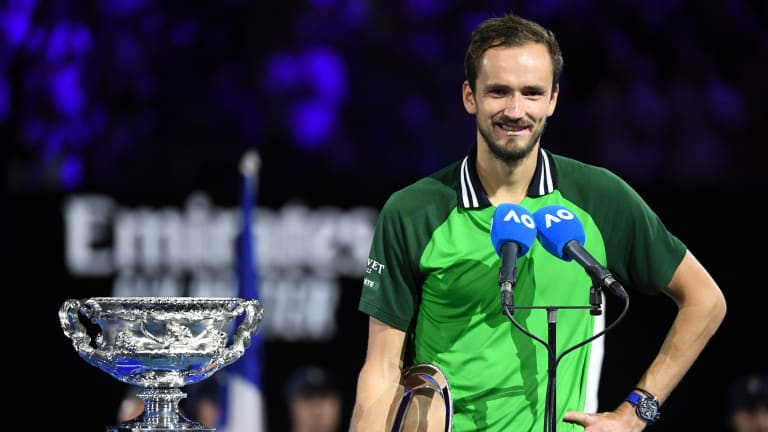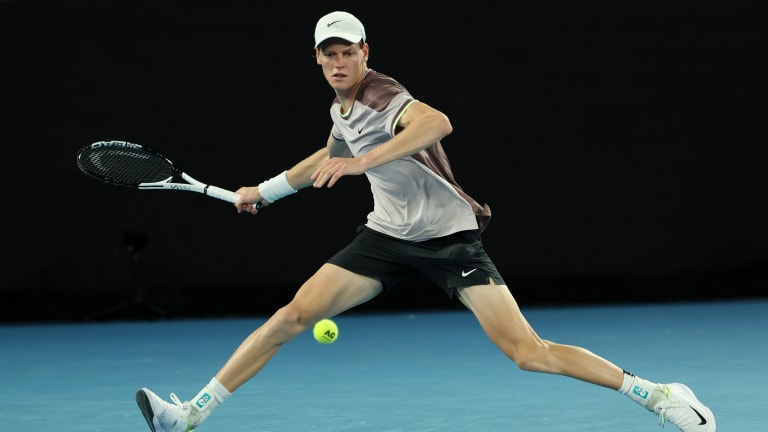Australian Open
'I like to dance in the pressure storm,' Jannik Sinner says ... and he did just that in his Australian Open triumph
By Jan 28, 2024Australian Open
Simona Halep, Cruz Hewitt given Australian Open qualifying wild cards
By Dec 18, 2024Australian Open
2014 champion Stan Wawrinka leads initial wild cards for 2025 Australian Open
By Dec 13, 2024Australian Open
Nick Kyrgios enters Australian Open for his first Grand Slam tournament in over two years
By Dec 06, 2024Australian Open
Jannik Sinner does it his way: He chose tennis over skiing and selected his new coaching team
By Jan 31, 2024Australian Open
The State of the ATP: What we learned from the 2024 Australian Open
By Jan 30, 2024Australian Open
'Grandissimo': Italian Premier Giorgia Meloni welcomes home Australian Open champion Jannik Sinner
By Jan 30, 2024Australian Open
The State of the WTA: What we learned from the 2024 Australian Open
By Jan 30, 2024Australian Open
The doubles mastery, and radical fun, of Hsieh Su-Wei
By Jan 29, 2024Australian Open
Pope Francis congratulates Italy after tennis player Jannik Sinner wins the Australian Open
By Jan 29, 2024Australian Open
'I like to dance in the pressure storm,' Jannik Sinner says ... and he did just that in his Australian Open triumph
On an exceptional and promising men’s final, where Daniil Medvedev put on the most valiant runner-up run in Slam history, only to be topped by Sinner, who came back from two sets down to win his first major title.
Published Jan 28, 2024
Advertising

Medvedev played an Open Era-record 31 sets in Melbourne, but couldn't win one more to take the title.
© Getty Images
Advertising
Advertising
Advertising

Sinner is the first Italian man in 48 years to win a Grand Slam singles title.
© Getty Images